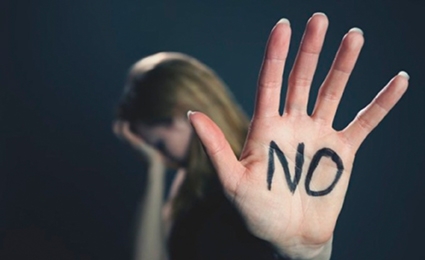Sexual Harassment to Become Punishable in Georgia
Georgia’s ruling and opposition parties and non-governmental sector have agreed to take steps to make sexual harassment punishable by law.
The Gender Equality Council, which consists of MPs, NGOs and experts, is working on a legislative package which will be presented to Parliament for approval.
The Gender Council has been a permanent body of Parliament since 2010 and aims at providing systematic and coordinated work on gender issues. There are 17 members of the council, of whom 14 are women and three men.
The NGOs have been demanding adoption of a law regarding the punishment of sexual harassment for a long time. However, the process was accelerated by the recent allegations of sexual harassment towards Head of Georgia’s Public Registry Papuna Ugrekhelidze, and Zviad Devdariani, the Head of the Civil Development Agency (CiDA), which works on social and economic rights and provides effective assistance to IDPs, eco-migrants, former prisoners and probationers, poverty-stricken persons, migrants and ethnic minorities.
Both Ugrekhelidze and Devdariani quit their posts though they rejected the accusations.
The exact measure of sanctions for sexual harassment will be decided after consultation between the NGOs and political parties.
All the participants in the process agree that the package needs to be elaborated as soon as possible, as the current legislation does not include a definition for sexual harassment.
NGO Partnership for Human Rights (PHR) says it is important the adopted draft law be effective.
“In order to ensure the adopted regulations really work, a supervision mechanism is also needed,” Ana Arganashvili from the PHR stated.
Tinatin Bokuchava from the opposition United National Movement (UNM) says the will of the executive government is decisive in such cases.
“Sanctions will not bring any positive results if the government does not realize the problem: the Justice Minister was covering for her employee accused of sexual harassment,” Bokuchava said, referring to the Ugrekhelidze case.
The issue of criminalizing sexual harassment was first raised by the NGO Women’s Movement, which presented a petition to Parliament in November 2017 for discussion.
The Committee for the Protection of Human Rights of the Parliament of Georgia reviewed the petition and sent it to the Gender Equality Council but the issue was not put to a vote in Parliament.
The Coalition for an Independent and Transparent Judiciary, which unites several NGOs, has released a statement regarding the recently voiced sexual allegations.
The Coalition considers sexual harassment of women in the workplace and other environments unacceptable and believes that protection from gender-based violence is a fundamental human right.
“The Coalition expresses its solidarity with all women who have experienced sexual harassment from any person, and considers that their rights must be protected by effective legal mechanisms,” the NGOs stated.
The statement reads that it is important for Parliament to share the responsibility for the fact that the incomplete legislation deprives the citizens of Georgia protection from sexual harassment.
“At the same time, it is important for NGOs that there is as yet no internal regulations against sexual harassment to develop such mechanisms,” the coalition noted. “These mechanisms should create a safe environment free from the threat of sexual harassment, consider sexual harassment-related complaints in a speedy and substantive manner, and ensure the sanctioning of relevant persons in cases where sexual harassment is established as a fact.”
Thea Morrison












